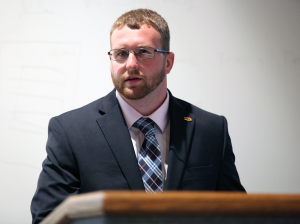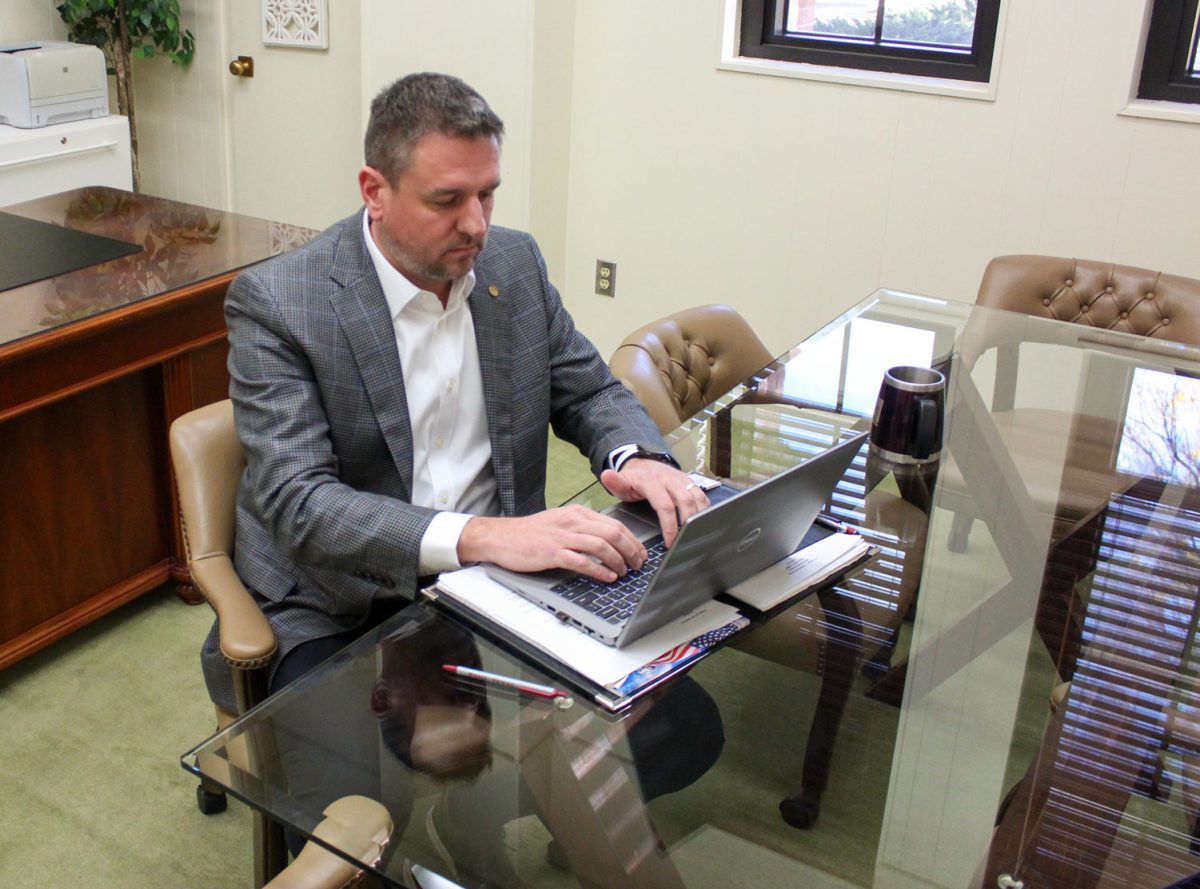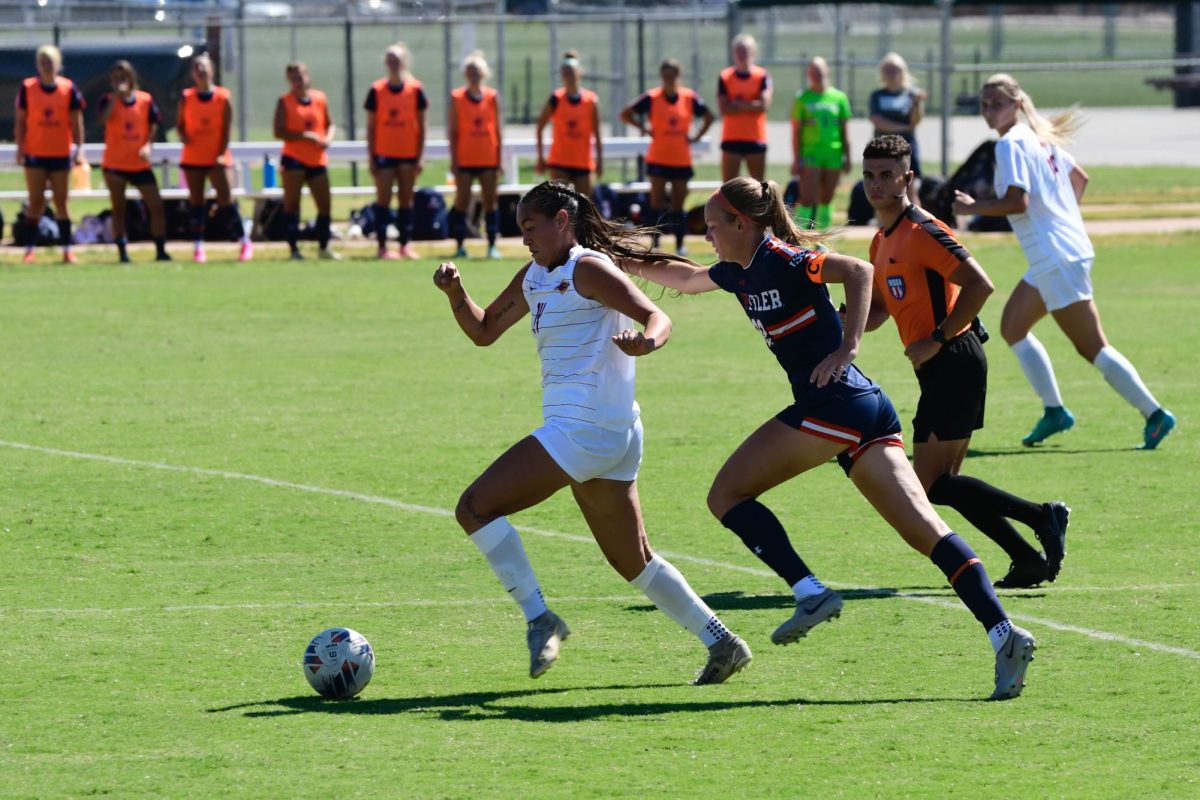
All successful politics require communication, preparation and respect on the part of its members. This applies to all levels of participation, especially in models like the Student Government Association where constituents and candidates are not only fellow students, but also friends. The desire to win an election should never hinder one’s ability to maintain good relationships across the board. For SGA president Jesse Brown, criminal justice junior and Student Regent, the mission is now to improve the SGA so that it might fully represent those standards to current and future students.
In retrospect, what should have happened is very clear. Brown said preparation for the election process was inadequate, leading to poor time management and, hence, poor execution. He said he plans to amend the bylaws so that the election process begins earlier, giving candidates a better opportunity to prepare campaigns, and students more time to make an informed vote.
“We kinda ran into a time-crunch window with how they had it planned out on the calendar, and that affected the bylaws,” Brown said. “The bylaws do need an overhaul.”
To do this, Brown said he will enlist the help of new vice president Mark Brown for his knowledge of parliamentary procedure. The changes will focus on the clarification of officer/committee roles, election procedure, and meeting formalities. Additionally, Brown said his administration plans to expand the SGA’s stamp of influence through a new Twitter and Facebook page, reaching out to as many students as possible.
“We have not been treating [the SGA] with the respect it deserves,” Brown said.
Brown said he wants the senators to understand parliamentary procedure not only for the sake of the meetings, but for their own business skills.
But it would be difficult for Brown and the rest of the executive leadership to plan for their first run as SGA leaders because they were not elected until the end of the spring semester. To offset this, Brown said he and the senators will hold phone conferences over the summer to discuss future plans.
“By the fall, everything will be in place and we’ll be ready to move forward,” Brown said.
Brown said all committees will be required to give a report to prove they are meeting prior to their expected duties. No one should be caught off guard or be associated with projects in name alone, and the chairman of each committee will be held responsible for any lack of preparation on that point.
Brown said he holds Marco Torres, psychology junior and chairman for the Campus Culture Committee who lead the introduction of the weekend bus route, as the standard for future chairmen.
“Marco did do a fantastic job chairing his committee. They did very well, they are actually the ideal initiative,” Brown said. “They had their work outside, they brought in their report to vote on and be discussed—that’s how meetings work. That’s how we’re going to try to get it to work across the board.”
According to Keith Lamb, vice president for student affairs and enrollment management, the existence of rules always invites their violation. Therefore, the prospect of writing bylaws that thoroughly prevent further conflict from occurring “just isn’t really realistic.” Instead, the new administration should address gaps in the code by eliminating ambiguity and taking into account the impact of technology in student conduct.
“They need to look at outlining the process a little more. The gap in the bylaws isn’t in what people campaigning can and can’t do, it’s [in] how you run a hearing of the elections board if an election is protested,” Lamb said.
To compensate for what is not outlined in the bylaws, the elections committee adopted a student-conduct hearing process identical to what the university already employs in other cases. Lamb said it was a good model because, “it affords each to make their case.” What is left for the SGA to accomplish is a formal adoption of that process, so that it might become the standard for future hearings.












